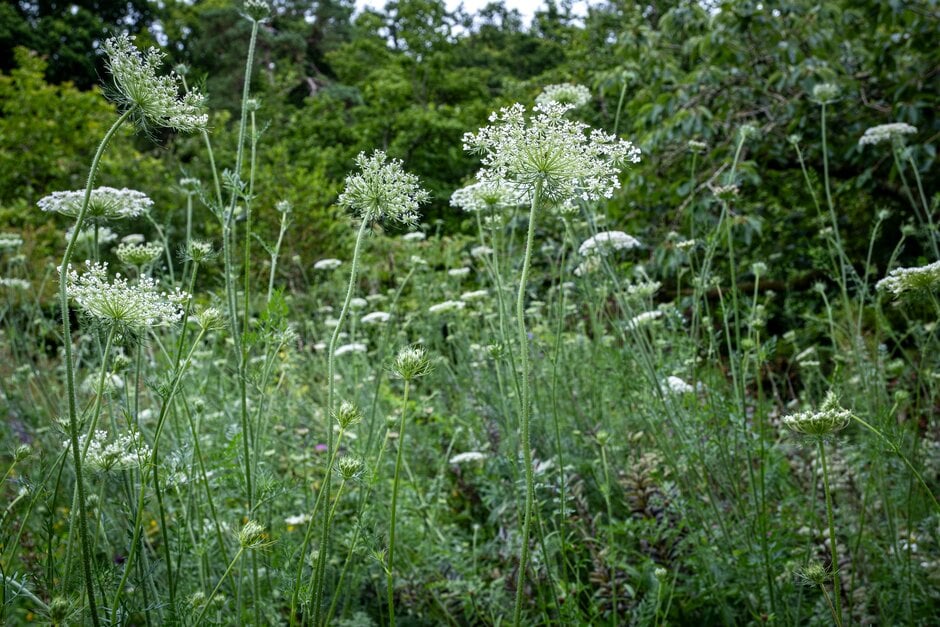Daucus carota
wild carrot
A tap-rooted biennial, its solid, ridged stems reaching 75cm in height. In summer it bears white umbel flowers, tinged pink in bud and sometimes in flower, the very central floret is dark red. Only this flower produces nectar. It can be identified from other umbellifers by the 3 forked bracts below the flowerhead. After flowering, these turn inwards giving the appearance of delicate baskets
Size
Ultimate height
0.5–1 metresTime to ultimate height
1–2 yearsUltimate spread
0.1–0.5 metresGrowing conditions
Moisture
Well–drainedpH
Alkaline, NeutralColour & scent
| Stem | Flower | Foliage | Fruit | |
| Spring | Green | |||
|---|---|---|---|---|
| Summer | Pink White | Green | ||
| Autumn | ||||
| Winter |
Position
- Full sun
Aspect
South–facing or East–facing or West–facing
Exposure
Exposed or Sheltered Hardiness
H7Botanical details
- Family
- Apiaceae
- Native to GB / Ireland
- Yes
- Foliage
- Deciduous
- Habit
- Bushy, Clump forming
- Genus
Daucus are more commonly known as wild carrot, a group of herbaceous, biennial (although not always) plants which can reach a height of between 30 to 60cm. The triangular shaped leaves are tripinnate, divided and lacy and flowers begin in pink buds, opening into small and white clustered together in dense umbels. The fruit is small, hairy and lumpy.
- Name status
Correct
- Plant range
- Europe to India
How to grow
Cultivation
Grow in light, well-drained, deep soils in full sun. Wild carrot is an ancestor of all cultivated carrot varieties, see carrots cultivation page for more advice
Propagation
Propagate from seed sown in situ between February and July, early sowings should be protected with cloches or biodegradable fleece. Sow thinly to avoid having to thin out seedlings, as this can attract carrot fly
Suggested planting locations and garden types
- Wildflower meadow
- Wildlife gardens
- Cottage and informal garden
Pruning
No pruning required
Pests
May be susceptible to carrot fly and slugs snails when young
Diseases
Generally disease-free
Love gardening
Sign up to receive regular gardening tips, inspiration, offers and more
View our Privacy Policy
Get involved
The Royal Horticultural Society is the UK’s leading gardening charity. We aim to enrich everyone’s life through plants, and make the UK a greener and more beautiful place.
